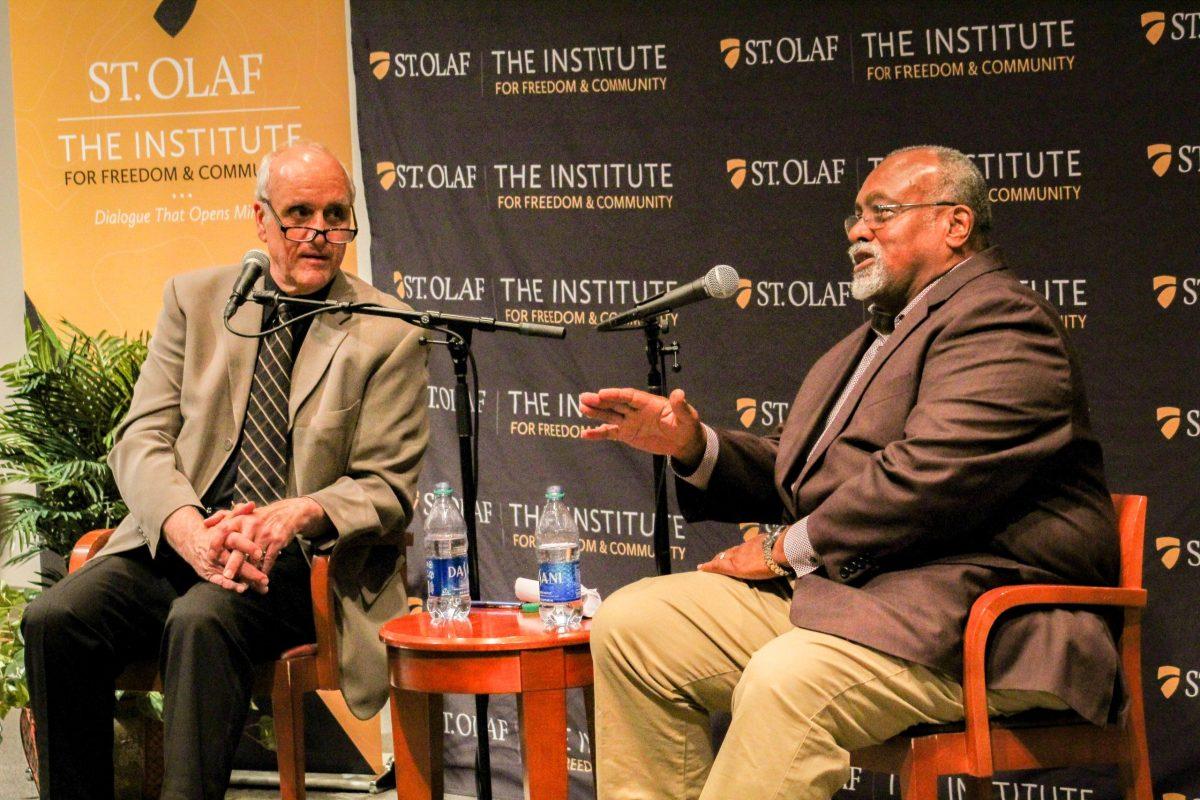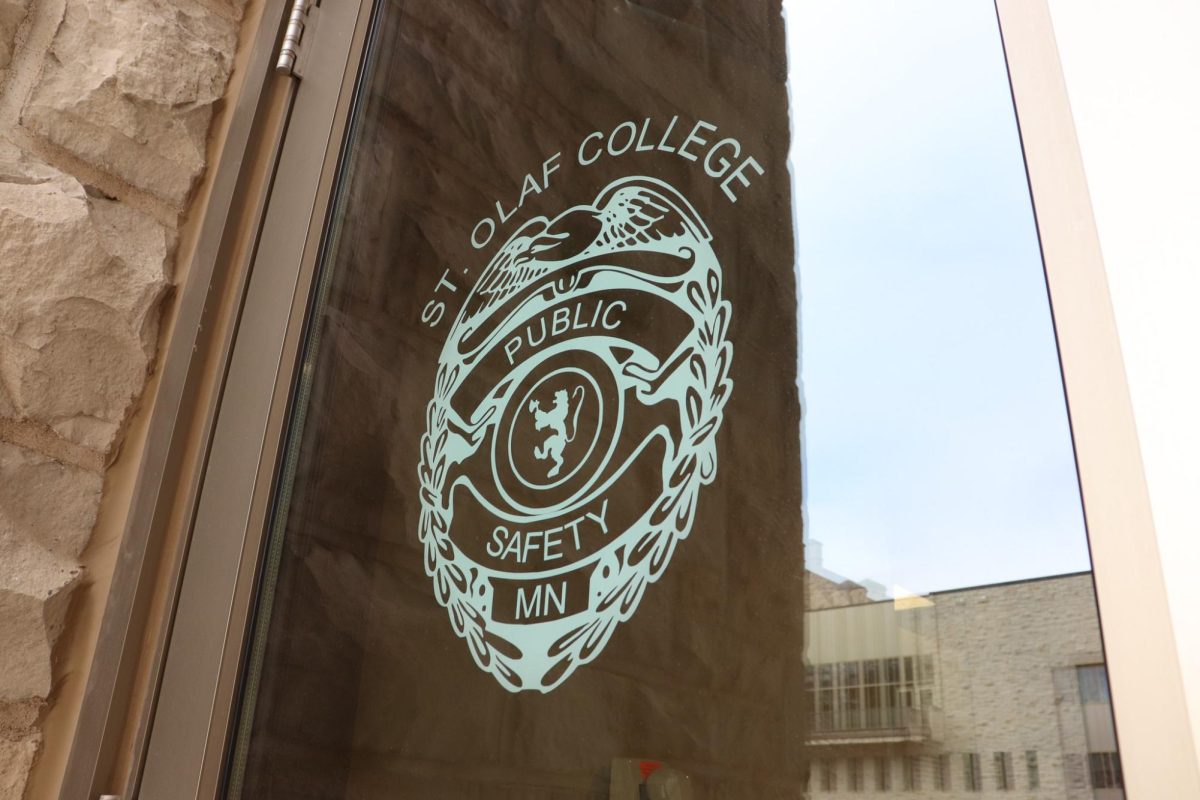Professor emeritus of economics at Brown University Glenn Loury arrived on campus Friday, Sept. 27 for a moderated discussion with St. Olaf students, professors and members of the Northfield community. It was the first event in the Institute for Freedom and Community’s fall series, “Discrimination and the Search for Justice and Truth.”
Loury is a member of the Econometric Society and the first black tenured professor of economics at Harvard University. Alongside these accomplishments, Loury also hosts a podcast called “The Glenn Show,” in which he discusses questions of economics and social justice with distinguished guests from the fields of academia, journalism and politics.
To open the talk, Institute director Edmund Santurri asked Loury to enumerate his stances on the idea of “black conservatives,” in regard to issues of affirmative action, reparations and police brutality.
In the dialogue, Loury was given the time to thoroughly explain his views on affirmative action. Rather than simply proclaiming himself as “being against affirmative action,” he stated that affirmative action is useful for a transitionary period but ultimately unjust as a permanent institution.
Loury argued it would be more politically effective to use trans-racial terms and policy to solve these problems, as opposed to labelling economic inequity and police brutality as raceless issues. He went on to claim that reparations would ultimately be a disservice to the black community. The dispersal of reparations would, politically speaking, discharge the obligation of the history of slavery and ultimately prevent progress on the issue of racial equality, Loury said.
“Why would I convert the birthright moral currency of having descended from slaves and being affected by that into a chip that could be discharged across a bargaining table?” Loury said regarding his argument against reparations.
During the question-and-answer session, students and members of the St. Olaf community posed several questions ranging from whether he was being used by conservatives as a strawman, to the literature behind affirmative action.
The only disruption in the questioning came from some members of the audience being unable to stifle their laughter when another audience member asked whether or not we should replace the word ‘white’ in racial discourse with the word ‘beige.’ Loury, to his credit, took the question seriously and offered some insights on the issues of linguistics in racial discourse.
The second event in the Institute for Freedom and Community’s fall series will be a moderated discussion with Alice Dreger on “Truth, Justice and the Science of Gender” Thursday, Oct. 10.






